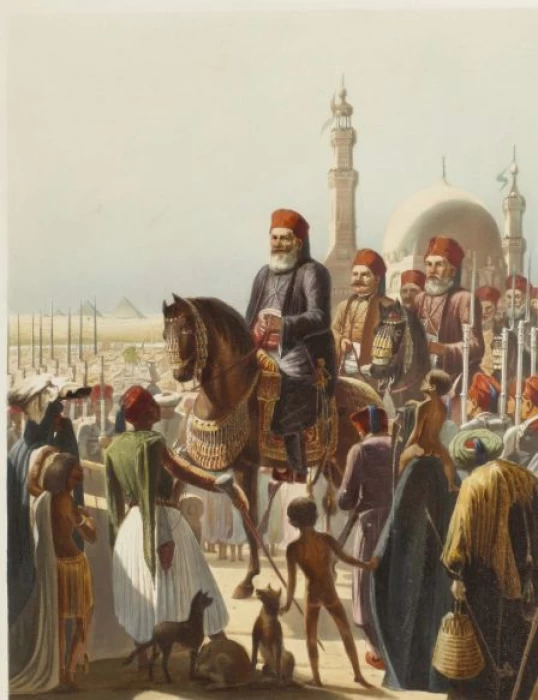
Egypt under the rule of foreigners
Egypt under the rule of foreigners
Alexander the Great, a Greek king from the region of Macedonia, is known to be the greatest general and conqueror in history. He was born on this day, July 20, 356 B.C. The warrior leader was an outstanding individual in his entire lifetime, and his merits brought him popularity as Alexander the Great and also Alexander the One with the Horns.
While the Egyptians celebrated the victory over the Persians and eventually rated Alexander as the deliverer from the Persian yoke, they could never erase from their memory the fact that the Persians had snatched away the kingship of Egypt from the last Pharaoh and imposed a regime alien and contemptible to their people, thus raising them to revolt against him on three occasions.
Muhammad Ali
Muhammad Ali came to Egypt in 1799 as part of an Ottoman military contingent to drive the French out, but the Ottoman forces were defeated at the Abi Qir land battle, and he returned home.
In 1801, he came to Egypt again as the second in command of the 300-member Albanian regiment dispatched by the Ottoman Empire aimed at displacing French forces in Egypt. After the evacuation of the French campaign, he was promoted to the rank of sargishme (general) and then nominated for the position of commander of the palace guard to the viceroy.
After the French were driven out of Egypt by British forces in 1801, there was a power vacuum, with the Mamluks, the sultan's forces, a group of Albanian troops under Muhammad Ali, and various local forces vying for control of the country.
When it came to local traders and religious leaders, Muhammad Ali did not spare efforts considering the importance of their support. It is thanks to these factors, that on June the 18th, 1805, sultan Selim III made him the governor of Egypt.
Al-Muizz Li Din Allah
Al-Moez succeeded his father Al-Mansur Abu Tahir Ismail, the third caliph in the list of Fatimid caliphs. Al-Moez was an educated man, fluent in several languages, fond of science and literature, experienced in managing the affairs of the state and conducting its affairs as a shrewd man who enjoyed the respect and appreciation of the statesmen.
He succeeded in building a strong army, creating leaders and conquerors, unifying the Maghreb under his banner and authority, and extending his influence to southern Italy.














